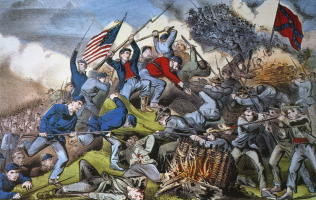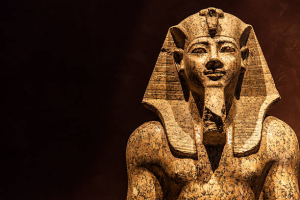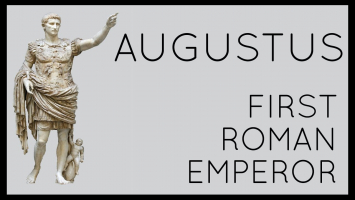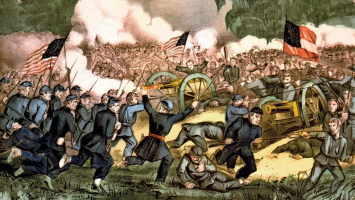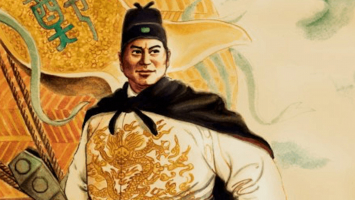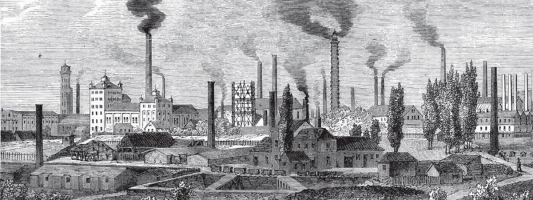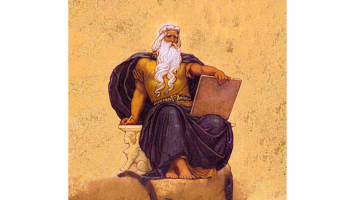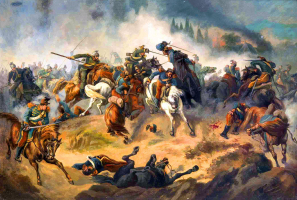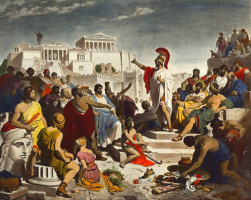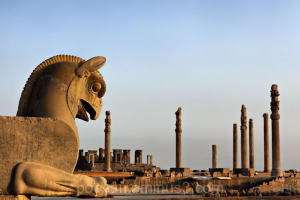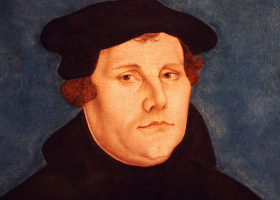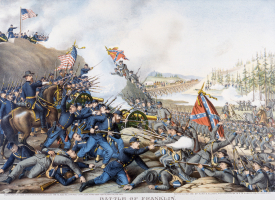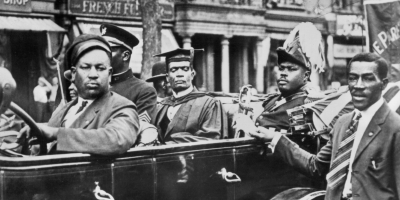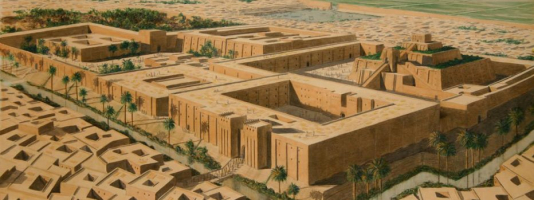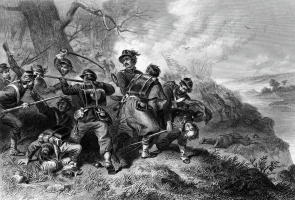Top 10 Facts About The Emancipation Proclamation
Even though sectional conflicts over slavery had been a major cause of the Civil War between North and South America, ending slavery was never a goal of the ... read more...war in the first place. That changed on September 22, 1862, when President Lincoln issued his Preliminary Emancipation Proclamation, and later the Emancipation Proclamation declaring "that all persons held as slaves" within the rebellious areas "are, and henceforward shall be free." The Emancipation Proclamation confirmed the insistence of Black people, and that the war for the Union must become a war for freedom. The document contributed greatly to slavery's final destruction. Let's go through some of the interesting facts about this special document.
-
When President Abraham Lincoln felt the time had come to pursue emancipation as a “military necessity,” he read an initial draft of his Proclamation to his cabinet. However, his advisors were apathetic to the Proclamation, worried that it might be too radical. On the other hand, Secretary of State William Seward suggested that Lincoln wait to issue the Proclamation until a Union victory could prove that the federal government could enforce it. Therefore, the preliminary Emancipation Proclamation which stated that enslaved people in those states or parts of states still in rebellion as of January 1, 1863, would be declared free, is officially issued on September 22nd, 1862, after the Battle of Antietam in the American Evolution.
One hundred days later, When the Confederacy did not yield, Lincoln issued the final Emancipation Proclamation on January 1st, 1863. This time, the Emancipation Proclamation provided that the executive branch, including the Army and Navy, "will recognize and maintain the freedom of said persons". Even though it excluded areas, not in rebellion, it still applied to more than 3.5 million of the 4 million enslaved people in the country. Around 25,000 to 75,000 were immediately emancipated in those regions of the Confederacy where the US Army was already in place. It could not be enforced in the areas still in rebellion, but, as the Union army took control of Confederate regions, the Proclamation provided the legal framework for the liberation of more than three and a half million enslaved people in those regions by the end of the war.
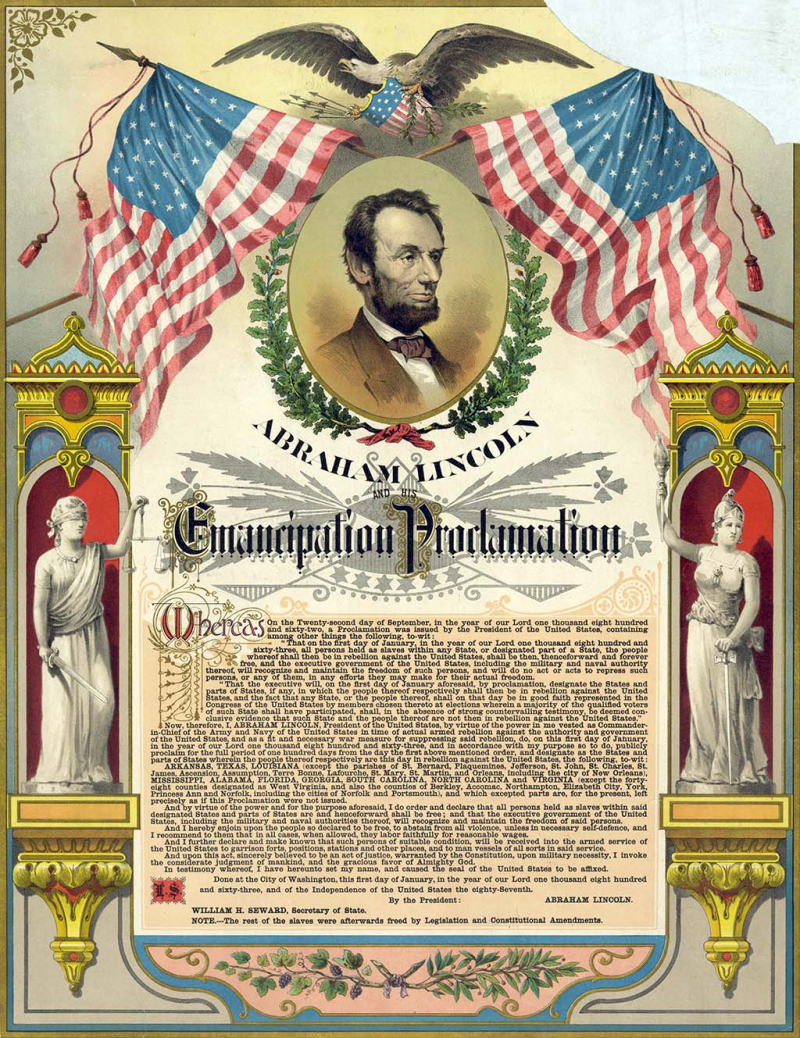
Photo: www.blackpast.org 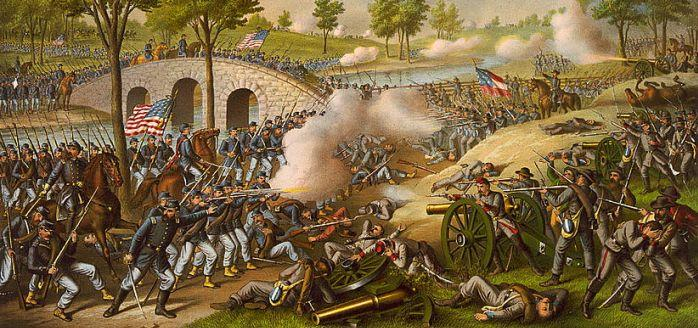
Photo: www.battlefields.org -
President Lincoln justified the Emancipation Proclamation as a war measure intended to cripple the Confederacy. Being careful to respect the limits of his authority, Lincoln applied the Emancipation Proclamation only to the Southern states in rebellion.
Of the states that were exempted from the Emancipation Proclamation, Maryland, Missouri, Tennessee, and West Virginia prohibited slavery before the war ended. In 1863, President Lincoln proposed a moderate plan for the Reconstruction of the captured Confederate States of Louisiana. Only 10% of the electors in the state were required to swear the loyalty oath. Additionally, the Proclamation had to be ratified and slavery had to be outlawed in the state's new constitution. By December 1864, the Lincoln plan abolishing slavery had been enacted not only in Louisiana but also in Arkansas and Tennessee. In Kentucky, Union Army commanders relied on the Proclamation's offer of freedom to slaves who enrolled in the Army and provided freedom for an enrollee's entire family; for this and other reasons, the number of slaves in the state fell by more than 70 percent during the war. However, in Delaware and Kentucky, slavery continued to be legal until December 18, 1865, when the Thirteenth Amendment went into effect.
Therefore, the Emancipation Proclamation did not free all slaves in the US, contrary to a common misconception; the Proclamation applied in the ten states that were still in rebellion in 1863, and thus did not cover the nearly 500,000 slaves in the slave-holding border states that had not seceded. Those slaves were freed by later separate state and federal actions.
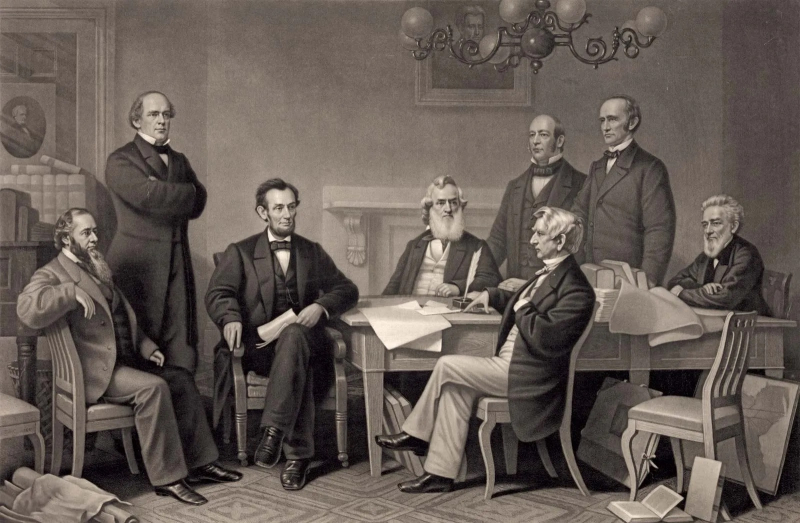
Photo: www.britannica.com 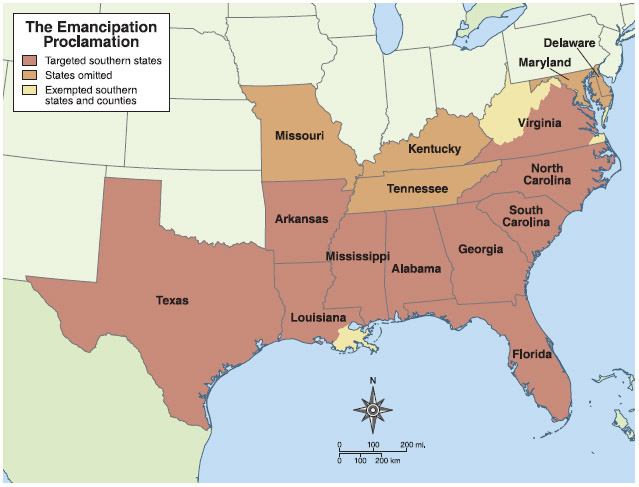
Photo: www.pvamu.edu -
President Abraham Lincoln first proposed the Emancipation Proclamation to his cabinet in the summer of 1862. This cabinet is Abraham Lincoln's first cabinet, which is a group of seven men including Gideon Welles, Sec. of the Navy Montgomery Blair, PM General Caleb B. Smith, Sec of the Interior Salmon P. Chase, Sec of the Treasury William H. Seward, Sec of State Edward Bates, Atty Genl Edwin M. Stanton, Sec of War.
After reading the draft of President Abraham Lincoln's Proclamation, Lincoln's cabinet members had mixed reactions. Most of the cabinet members were unconcerned with the document. They worried that the Emancipation Proclamation might be too radical for the situation at the moment. This is due to the fact that such a document is so ahead of its time, stating problems that were seen as impossible to be solved. Only after Secretary of State William Seward's suggestion that the document stands a chance to be published. William Seward suggested that the President should wait to issue the Proclamation until a Union victory could prove that the federal government could enforce it. President Abraham Lincoln agreed, and the preliminary Emancipation Proclamation is officially issued on September 22nd, 1862.
William Seward had always been a close friend and loyal subordinate to President Abraham Lincoln. According to newspaper accounts, he said that everyone would soon see Lincoln as “a true patriot, benevolent and loyal, honest and faithful. Hereafter, all motive of detraction of him would cease to exist, and Abraham Lincoln would take his place with Washington, Jefferson, and Adams, among the benefactors of his country and the human race.”
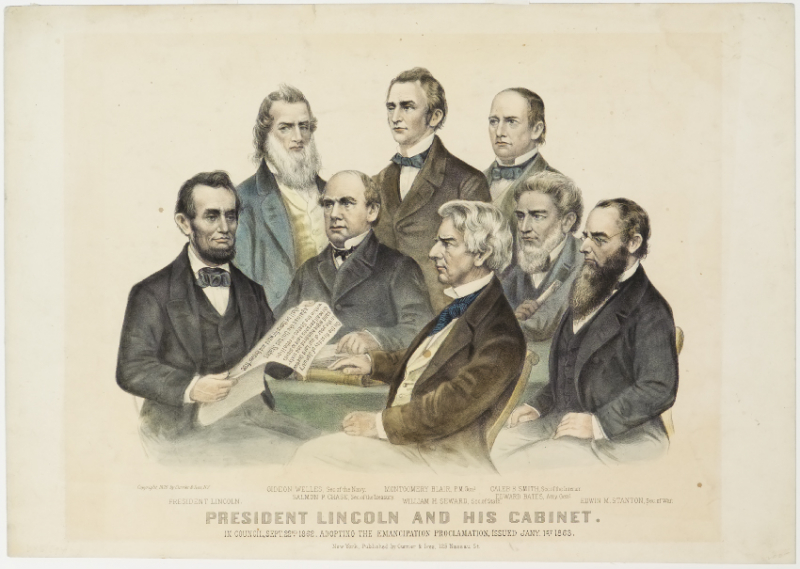
Photo: springfieldmuseums.org Video: History in Five -
When President Lincoln first proposed the Emancipation Proclamation to his cabinet, they worried that the Proclamation was too radical. It was only Lincoln’s firm commitment to the necessity and justice of the Proclamation, along with the victory at Antietam, which finally persuaded his cabinet members to support him.
The Battle of Antietam also called the Battle of Sharpsburg, occurred on September 17, 1862, at Antietam Creek near Sharpsburg, Maryland. It pitted Confederate General Robert E. Lee’s Army of Northern Virginia against Union General George McClellan’s Army of the Potomac and was the culmination of Lee’s attempt to invade the north. After the battle ended, thousands of bodies littered the sprawling Antietam battlefield and both sides regrouped and claimed their dead and wounded. Just twelve hours of intense and often close-range fighting with muskets and cannons had resulted in around 23,000 casualties, including an estimated 3,650 dead. The battle’s outcome changed the course of the Civil War, shaped America’s future, and remains the deadliest one-day battle in all of American military history.
The Union’s claim of victory at Antietam and Lincoln’s Emancipation Proclamation is thought to be why Republicans held the House in the 1862 mid-term elections. They also eliminated any chance that France and Great Britain would acknowledge the Confederacy and defend them. This reinforced the Confederacy's isolation and made it much more difficult for them to resupply their troops and civilians.
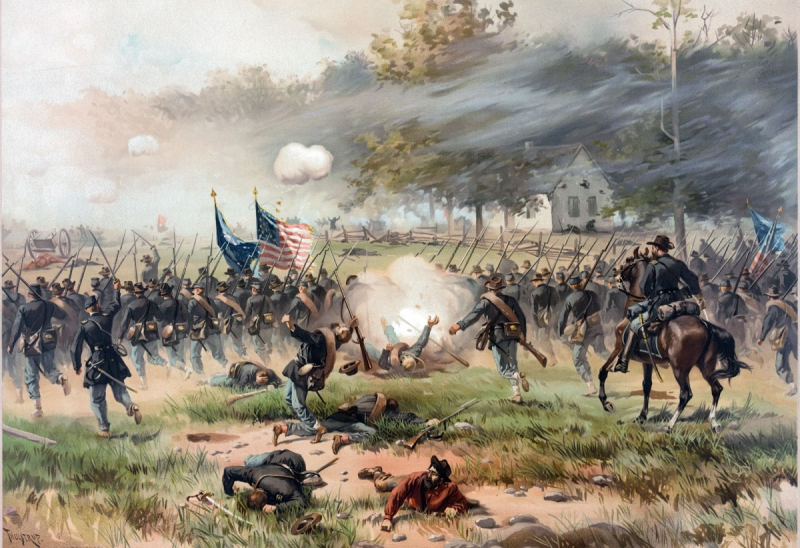
Photo: www.history.com Video: You Will Love History -
The Southern states used slaves to support their armies on the field and to manage the home front so more men could go off to fight. Thousands of black Americans were forced to support the operations of the Confederate army. Black men and women were forced to build fortifications, work as blacksmiths, nurses, boatmen, and laundresses, and work in factories, hospitals, and armories. In 1863, more than 6,000 accompanied the 71,000 soldiers of the Army of Northern Virginia into Pennsylvania. In a display of his political genius, President Lincoln shrewdly justified the Emancipation Proclamation as a “fit and necessary war measure” in order to cripple the Confederacy’s use of slaves in the war effort.
Lincoln also declared that the Emancipation Proclamation would be enforced under his power as Commander-in-Chief and that the freedom of the slaves would be maintained by the “Executive government of the United States.” he stated: "I do order and declare that all persons held as slaves within said designated States, and parts of States, are, and henceforward shall be free... Such persons of suitable condition will be received into the armed service of the United States... And upon this act, sincerely believed to be an act of justice, warranted by the Constitution, upon military necessity, I invoke the considerate judgment of mankind and the gracious favor of Almighty God...."
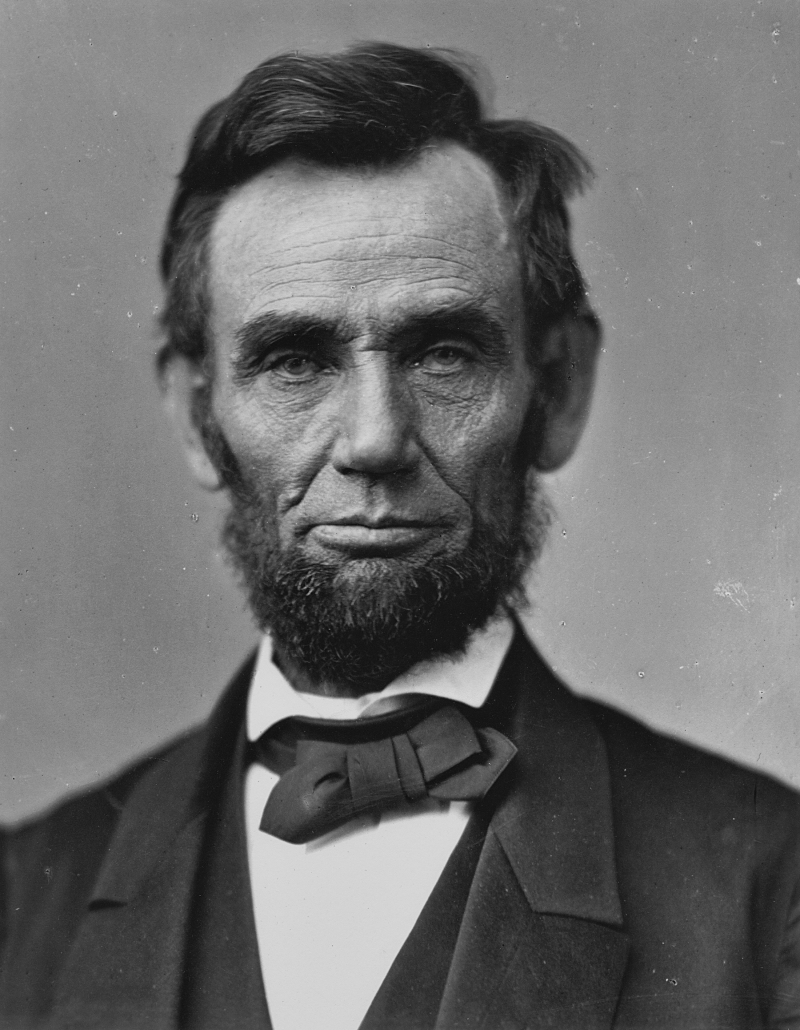
Photo: Wikipedia 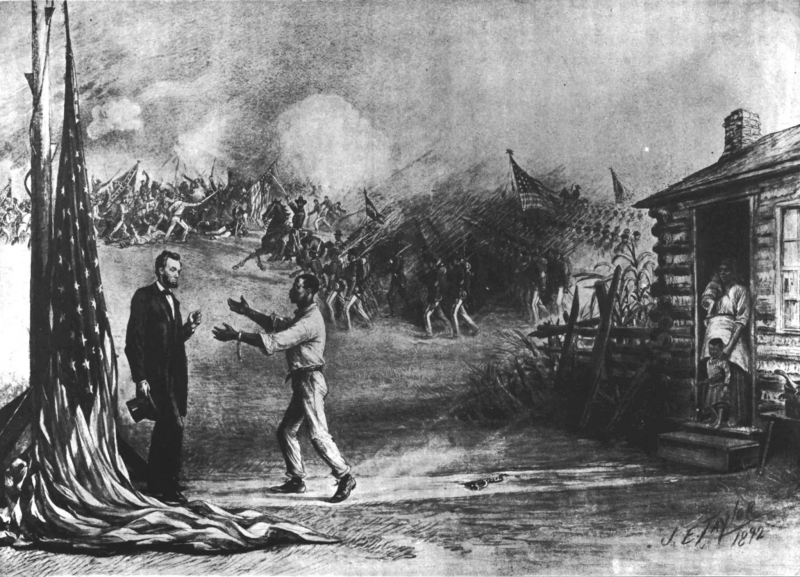
Photo: www.nytimes.com -
Up until September 1862, the main focus of the war had been to preserve the Union. At the level of principle, the goals of the American Revolution were outlined in the Declaration of Independence of 1776. More specifically, patriots fought the revolution in order to: 1) become an independent nation; 2) create a new system of self-governance; 3) claim equal rights for all citizens and establish the rule of law required for that to be meaningful; 4) gain independent membership in the European state system; and 5) rid themselves of tyranny. The revolutionaries’ goal was to create a viable nation-state that would be equal in standing to the nations of Europe. Patriots expected that an independent America would assume a “separate and equal station” among other modern European nations, including France, the Dutch Republic, Spain, or even Britain and worked actively to bring that about. Despite stating that one of the main focuses of the war was to claim equal rights for all citizens, the freedom of slaves was never in question.
That is until the issuance of the Emancipation Proclamation in which President Abraham Lincoln stated "the Executive Government of the United States, including the military and naval authority thereof, will recognize and maintain the freedom of such persons, and will do no act or acts to repress such persons, or any of them, in any efforts they may make for their actual freedom" while mentioning one of the goals that the war aims for. Thanks to that, freedom for slaves became a legitimate war aim, and by the end of the war, many slaves earns their freedom.
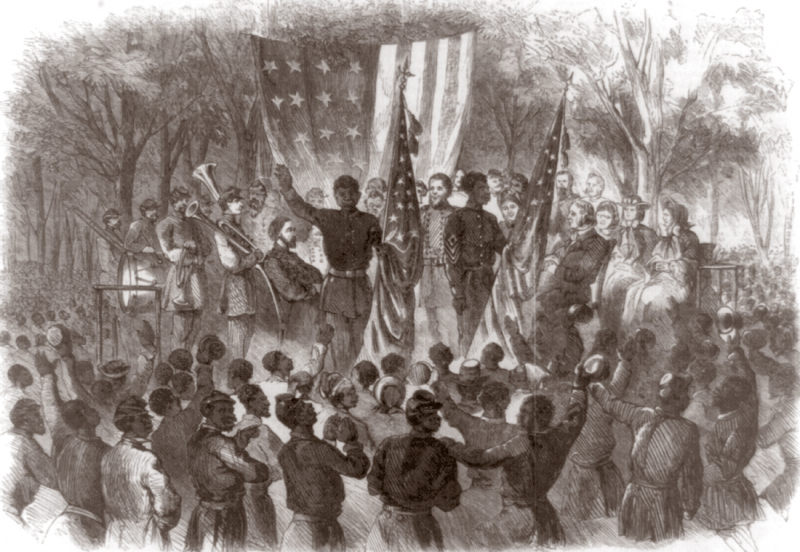
Photo: www.scseagrant.org Video: US National Archives -
Prior to the American Civil War, the United States traded with other countries, including Great Britain and France. The two countries remain somewhat neutral during the American Revolution, but they did consider joining the war to expand their country's power, and influence in the Western Hemisphere. British leaders had some sympathy for the Confederacy but were never willing to risk war with the Union. France was even more sympathetic to the Confederacy, but it was threatened by Prussia and would not make a move without full British cooperation.
At the start of the Civil War, the Union government refused to acknowledge the legitimacy of the Confederacy. In fact, throughout the entire war, President Abraham Lincoln, the 16th President of the United States, did not recognize the South as an independent nation. In the eyes of the North, Union forces were fighting to bring rebellious states back into the country. However, those in the South believed that they were forming their own country and were a legitimate nation. To earn their independence, they had to fight and win on the battlefields, as well as gain international powers to recognize the Confederacy as a separate nation, possibly providing legitimacy to the Confederate cause. Therefore, their best chance at victory meant that ties between the South and Europe needed to be strengthened. That reason opened the door for the involvement of Britain and France in the Civil War.
However, Lincoln's directive - The Emancipation Proclamation - reinforced the shift of the international political mood against intervention while the Union victory at Antietam further disturbed those who didn't want to intervene on the side of a lost cause.
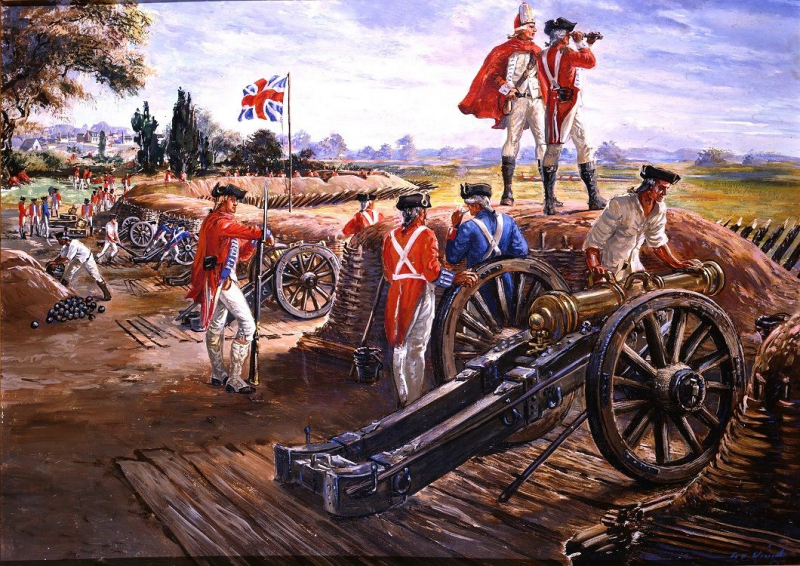
Photo: www.pinterest.com Video: Lord John -
In 1862, President Lincoln's Emancipation Proclamation opened the door for African Americans to enlist in the Union Army. Although many had wanted to join the war effort earlier, they were prohibited from enlisting by a federal law dating back to 1792. Lincoln declared in the Proclamation that African-Americans of “suitable condition, would be received into the armed service of the United States.” Five months after the Emancipation Proclamation took effect, the War Department of the United States issued General Order No. 143, establishing the United States Colored Troops (USCT). By the end of the war, over 200,000 African-Americans would serve in the Union army and navy.
African-American soldiers faced uncountable difficulties created by racial prejudice. Although many served in the infantry and artillery, discriminatory practices resulted in large numbers of African-American soldiers being assigned to perform non-combat, support duties as cooks, laborers, and teamsters. If captured by the Confederate Army, African-American soldiers confronted a much greater threat than their white counterparts.
However, in spite of their many hardships, African-American soldiers served the Union Army well and distinguished themselves in many battles. Of their service to the nation Frederick Douglass said, "Once let the black man get upon his person the brass letters U.S., let him get an eagle on his button, and a musket on his shoulder and bullets in his pockets, and there is no power on earth which can deny that he has earned the right of citizenship in the United States."
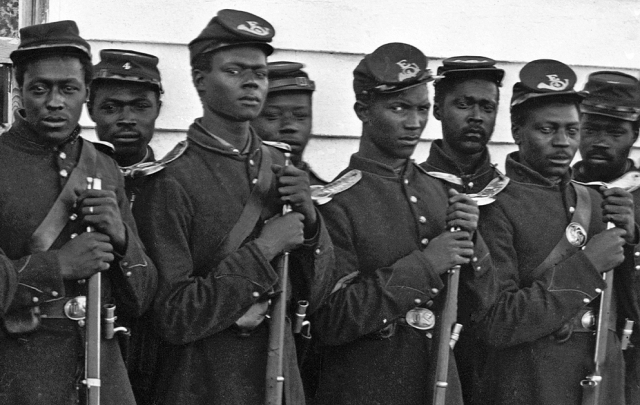
Photo: www.blackpast.org Video: You Will Love History -
With the Emancipation Proclamation, the aim of the war changed to include the freeing of slaves in addition to preserving the Union. Black Americans were permitted to serve in the Union Army for the first time, and nearly 200,000 would do so by the end of the war, which contributed greatly to the outcome of the war. However, the Emancipation Proclamation did not end slavery in the nation. The Proclamation applied in the ten states that were still in rebellion in 1863 and thus did not cover the nearly 500,000 slaves in the slave-holding border states that had not seceded. Those slaves were freed by later separate state and federal actions.
Although the Proclamation initially freed only the slaves in the rebellious states, by the end of the war the Proclamation had influenced and prepared citizens to advocate and accept abolition for all slaves in both the North and South. After January 1, 1863, every advance of federal troops expanded the domain of freedom. Therefore, one can say the Emancipation Proclamation paved the way for the permanent abolition of slavery in the United States. There were also many, many smaller events that contributed to abolition. The 13th Amendment, which abolished slavery in the United States, was passed on December 6th, 1865.
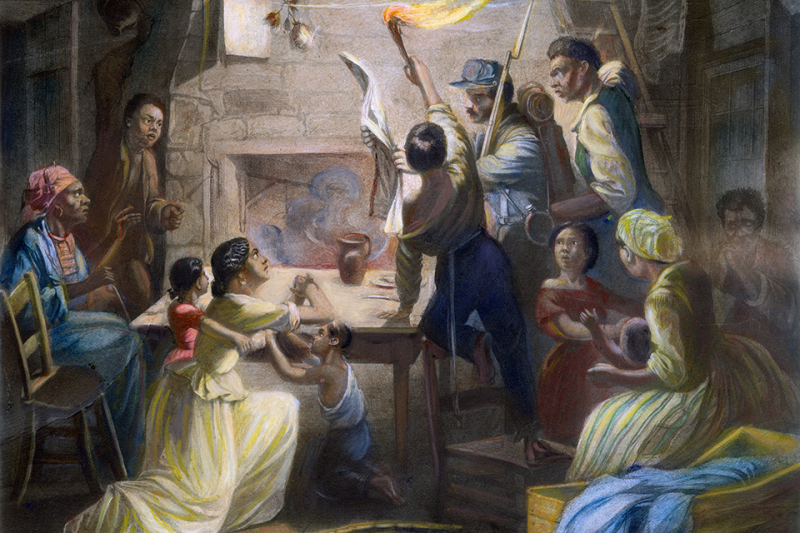
Photo: www.historynet.com Video: US National Archives -
As President, Lincoln built the Republican Party into a strong national organization. Further, he rallied most of the northern Democrats to the Union cause. Still, the most lasting accomplishments attributed to Abraham Lincoln are the preservation of the Union, the vindication of democracy, and the death of slavery.
On January 1, 1863, he issued the Emancipation Proclamation that declared forever free of those slaves within the Confederacy. One of the most significant achievements of the Proclamation is paving the way for the permanent abolition of slavery in the United States. The Emancipation Proclamation also turned foreign popular opinion in favor of the Union by gaining the support of anti-slavery countries and countries that had already abolished slavery. Public opinion in Britain would not tolerate support for slavery. As Henry Adams noted, "The Emancipation Proclamation has done more for us than all our former victories and all our diplomacy". In Italy, Giuseppe Garibaldi hailed Lincoln as "the heir of the aspirations of John Brown". On August 6, 1863, Garibaldi wrote to Lincoln: "Posterity will call you the great emancipator, a more enviable title than any crown could be, and greater than any merely mundane treasure". Mayor Abel Haywood, a representative for workers from Manchester, England, wrote to Lincoln saying, "We joyfully honor you for many decisive steps toward practically exemplifying your belief in the words of your great founders: 'All men are created free and equal.'"
Heralded as the savior of the Union, President Lincoln considered the Emancipation Proclamation to be the most important aspect of his legacy. “I never, in my life, felt more certain that I was doing right than I do in signing this paper,” he declared. “If my name ever goes into history it will be for this act, and my whole soul is in it."
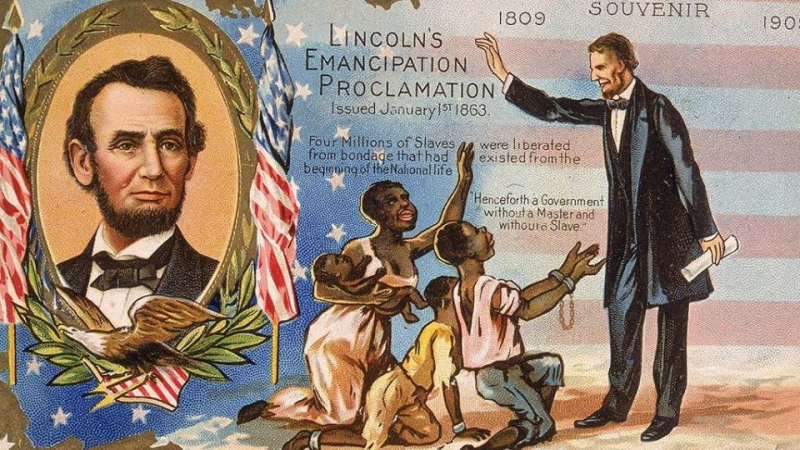
Photo: vn.yahoo.com 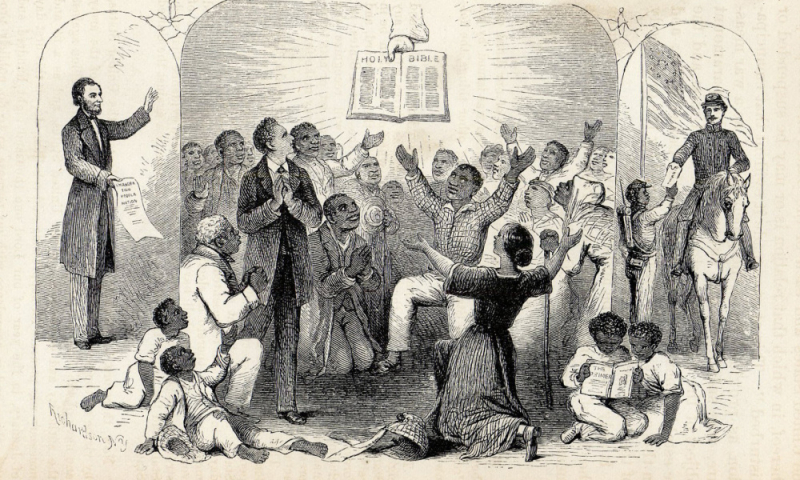
Photo: www.npr.org












